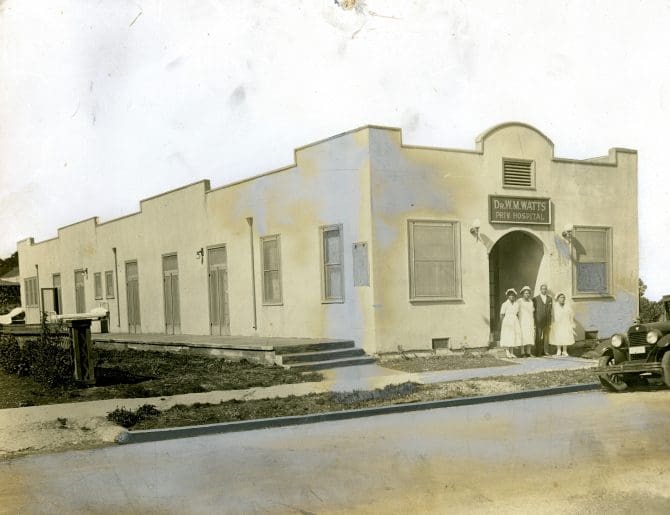
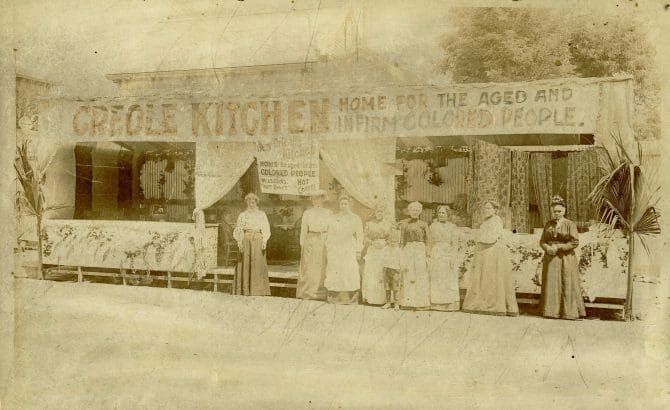
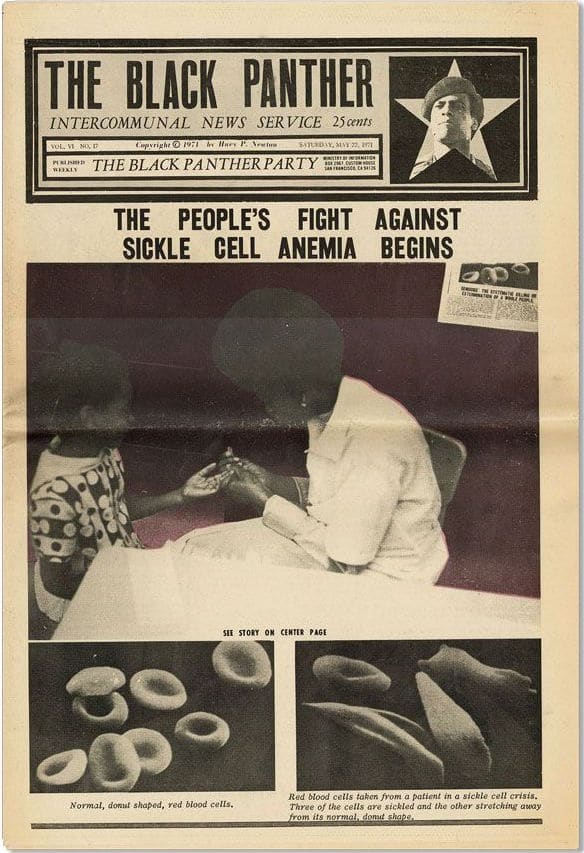
Prepare for a visit to AAMLO with these special topic resource guides.
This resource guide is intended to help users locate holdings at AAMLO related to African Americans in medicine and health care.
It highlights holdings in the following areas:
● Selected Library Material at AAMLO
● Selected Archival Collections at AAMLO
Other collections may contain relevant materials. Please contact AAMLO (aamlo@oaklandlibrary.org) with any questions or to schedule an appointment to view materials in person.
Selected Library Materials
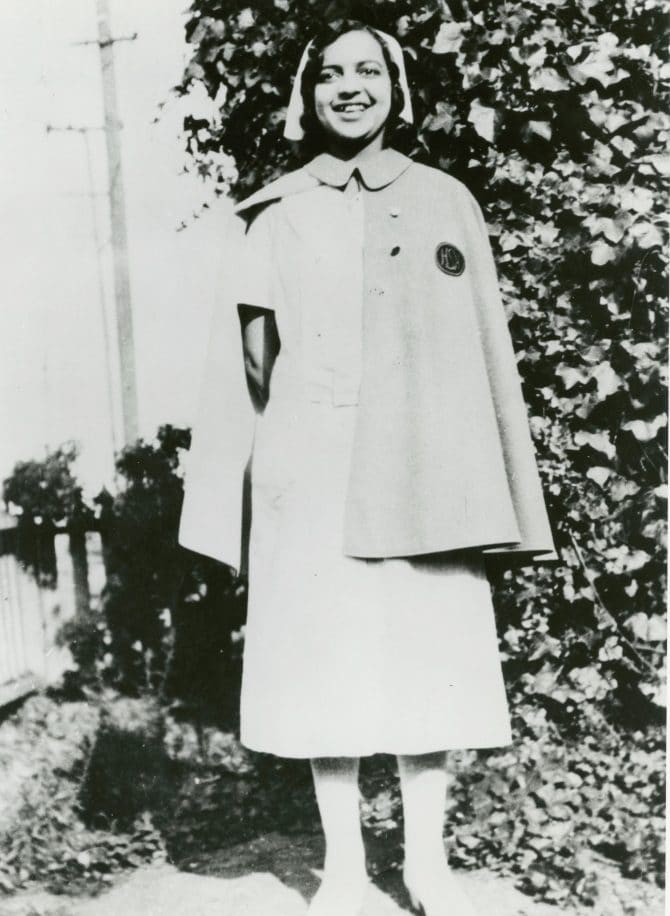
Biographical Dictionary of American Physicians of African Ancestry, 1800-1920
Sick and Tired of Being Sick and Tired: Black Women's Health Activism in America, 1890-1950 by Susan Lynn Smith
Making a Place for Ourselves: the Black Hospital Movement, 1920-1945 by Vanessa Northington Gamble
Against the Odds: Blacks in the Profession of Medicine in the United States by Wilbur H. Watson
Nine Black American Doctors by Robert C. Hayden
Medical Care and the Plight of the Negro (National Assn. for the Advancement of Colored People)
Black Women in the Nursing Profession by Darlene Clark Hine
Under Siege: Construction and Care at the Fannie Wall Children's Home and Day Nursery by Marta Gutman
Marching Together: Women of the Brotherhood of Sleeping Car Porters by Melinda Chateauvert
Dr. Marvin Poston: Making Opportunities in Vision Care (University of California, Berkeley. Black Alumni Club)
Selected Archival Collections
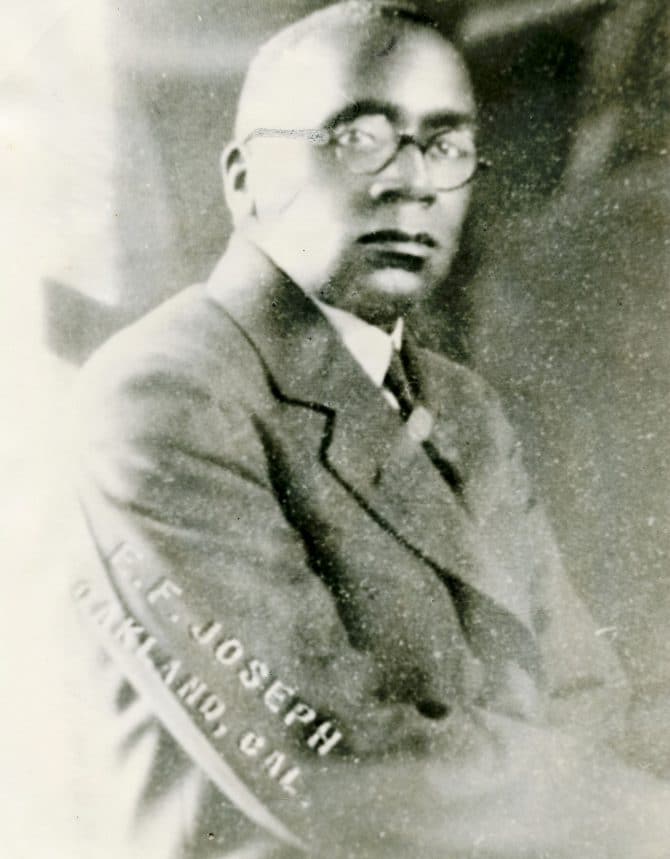
Home for Aged and Infirm Colored People of California Records. The Home for Aged and Infirm Colored People of California was established on September 26, 1892 in Oakland, California and was the first institution to provide elderly care and housing for African Americans in California. The organization was created by Mary E.A. Cole, Ann S. Purnell, Elenora Amos, Areminto Stanford, Mary Goodman, Rosa H. Lockett, Mary C. Washington, Ellen Whiting, Harriet E. Smith, Mary J. Humphrey, and Anna Williams to “sustain a home for the aged and infirm who may be from any cause, incapacitated from taking care of themselves, and such others as the Board of Directors or trustees may think entitled to its benefits.” The Home for the Aged and Infirm Colored People of California Records consists of articles of incorporation, constitution and by-laws, correspondence, meeting minutes, reports, programs, and newspaper clippings documenting the history of the home from its creation in 1892 through its dissolution in 1940.
Frances Albrier Papers. In 1921, social activist Frances Albrier (1898-1987) attended a meeting of Marcus Garvey’s Universal Negro Improvement Association at the Oakland Auditorium and joined the Black Cross Nurse Corps. After she was unable to find a nursing job in the Bay Area’s segregated hospitals, she took a position as a maid with the Pullman Company in 1926. During the 1940s, she was active in a number of women's, civil rights, and union organizations while serving as a first aid instructor in the American Red Cross.
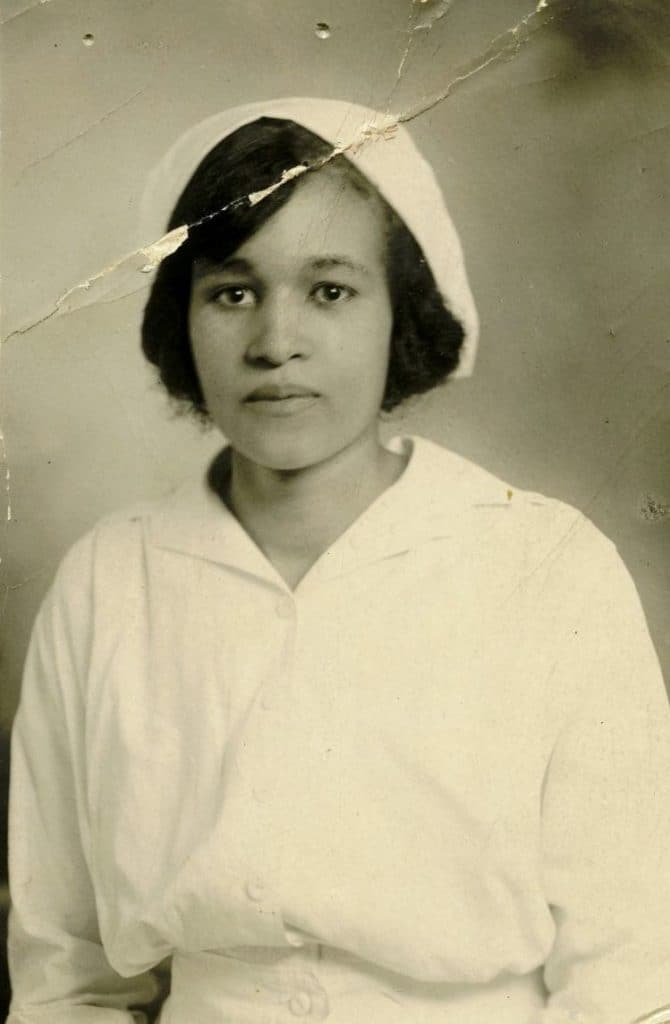
Bernice Middleton Papers. Bernice Middleton (1915-2002) was born in 1915 in Arkansas to Rev. T.J. and Pearline Middleton. After graduating with an R.N. license from the Women’s Army Auxiliary Corps she moved to California where she worked as a nurse in the armed forces. Following the outbreak of World War II, she moved to San Francisco to work at a veterans’ hospital in 1943. After working as a nurse at various hospitals and private practices in San Francisco in the 1940s, she returned to school at Wilberforce University in Ohio and after graduation took a position as Assistant Dean of Women at Morris Brown University in Atlanta, Georgia in 1953. Returning to California, she was appointed Dean of Girls at the California School for the Deaf in Berkeley, where she taught for the next seven years, before teaching at Ceres Unified School District (1960-1967) and Modesto Junior College. The Bernice Middleton papers include certificates, correspondence, photographs, meeting minutes, funeral programs, newspaper clippings, and a handwritten autobiography documenting the life and career of Bernice Middleton (1915-2002).
De Shields Family Papers. Born in Boston, Massachusetts in 1866, Ivan De Shields came to California with his parents, where he lived for the next 50 years of his life. De Shields owned a distillery in Fruitvale which distilled oils, primarily Eucalyptus oil, which he sold for aliments, including rheumatism, toothache, diphtheria, whooping cough, and asthma. A member of the sick committee of the Knights of Pythias, as well as a member of the Democratic party, Ivan De Shields died on May 3, 1945.
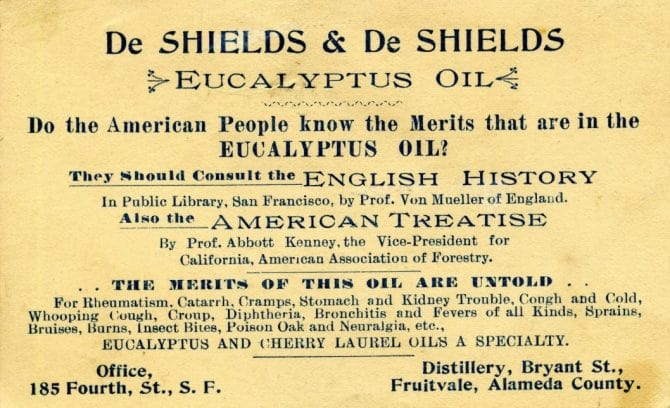
Oakland Economic Development Council Newsletter Collection. The Oakland Economic Development Council was a local agency established in 1965 to implement programs associated with the Office of Economic Opportunity and the ‘War on Poverty’ in Oakland, California. The council’s programs were funded through Office of Economic Opportunity and Ford Foundation grants and were administered at Neighborhood Service Centers in North Oakland, West Oakland, East Oakland, and Fruitvale. Programs included family planning clinics, preventative health programs, legal aid services, job training, remedial instruction, small business development, dental and eye services, head start and day care, youth employment, and emergency aid and housing for women and children.
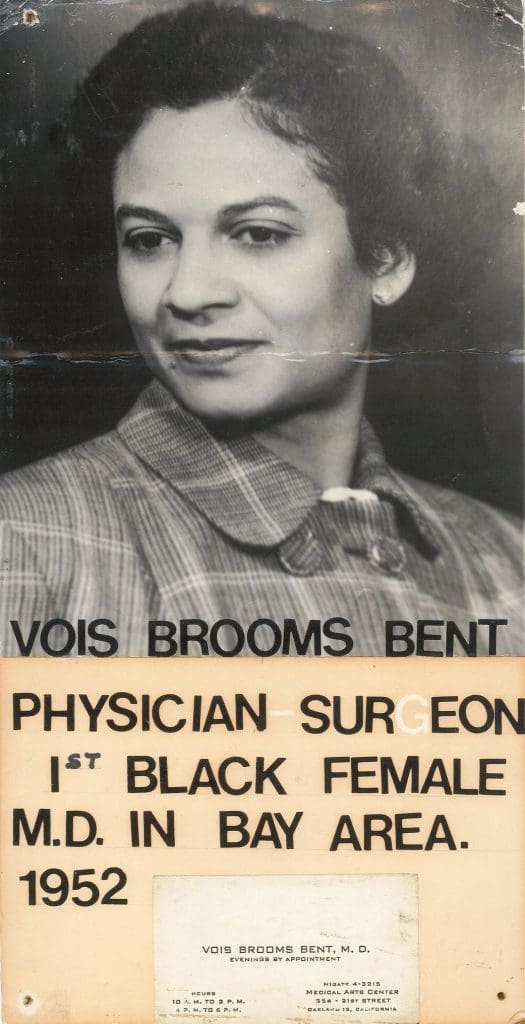
Jean M. Martin Pinder Papers. Jean M. Martin Pinder (1916-2014) was among the first African American women to graduate from the Yale School of Public Health and an advocate for health education policy and population family planning policy in pre- and early post-Independence-era Africa. The Jean M. Martin Pinder papers consist of various certificates and recognitions, photographs of Simms Martin family members, and a copy of Pinder’s 1935 San Francisco State University Franciscan yearbook inscribed by classmates and faculty.
Thelma Gibson Radden Papers. Nurse and educator Thelma Gibson Radden (1903-2004) was born on February 18, 1903 in Oakland, California to Charles Nelson Gibson and Maude Esther Gibson. She attended the University of California Berkeley for one year before continuing her education at the School of Nursing at the Kansas City General Hospital No. 2, the first hospital in the United States staffed solely by African Americans and one of the few hospitals that offered degree programs for African Americans at the time. After graduation, she had a long and distinguished career as a nurse, administrator, and educator, earning a degree in Nurse Education from Wayne State University in 1950. She worked as a surgical supervisor and hospital administrator at Homer G. Philip Hospital in St. Louis, Missouri and Norfolk Community Hospital in Norfolk, Virginia. For the bulk of her career, she was the assistant director of nursing services for the Detroit Chapter of the American Red Cross. As assistant director for over twenty years, she taught classes in Home Nursing, Mother and Baby Care, and Home Care for the Disabled, and in 1941 she taught the first class of African Americans in the American Red Cross’ Gray Ladies Service, a cadre of non-medical volunteers that provided assistance in blood donations and disaster response.
William M. Watts Papers. William M. Watts (1885-1980) was born on February 15, 1885 in Lodi, Texas to Perry and Jane Watts. After earning a medical degree from Meharry Medical College in Nashville, Tennessee, Watts practiced medicine at hospitals in Houston, Texas and Fresno, California before opening W.M. Watt's Private Hospital, the first hospital for African Americans in Oakland, California in 1926 at 3437 Harlan Street in North Oakland. While in Oakland, Watts contributed to Western American, a local African American newspaper, the medical advice column How to Keep Well. The hospital closed due to financial troubles in 1927, and Watts returned to Marshall, Texas to operate the Sheppard-Watts Hospital following the death of his brother. Watts continued to practice as a physician until his retirement in the late 1960s. The William M. Watts papers include photographs, patient and account ledger, license applications, newspapers clippings, funeral program, and one edition of the Jackson County Medical Journal.
Black Panther Black Community News Service Collection. The Black Panther Black Community News Service Collection consists of 420 newspapers published by the Black Panther Party between 1967-1980. Each issue was between 16-28 pages and featured a range of articles and op-eds on the activities of the party, including their many community-service and public health programs such as the Peoples’ Free Medical Clinics and the Breakfast for Children program.
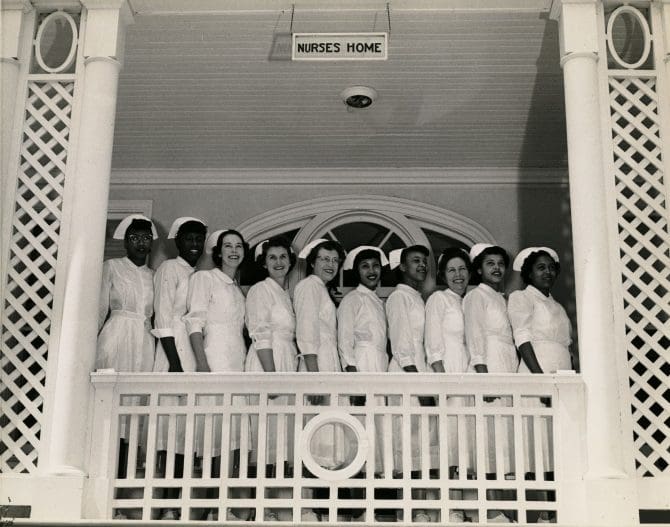
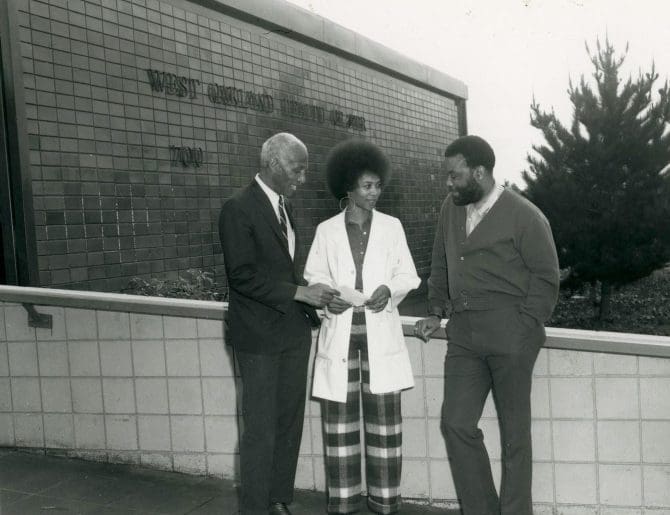
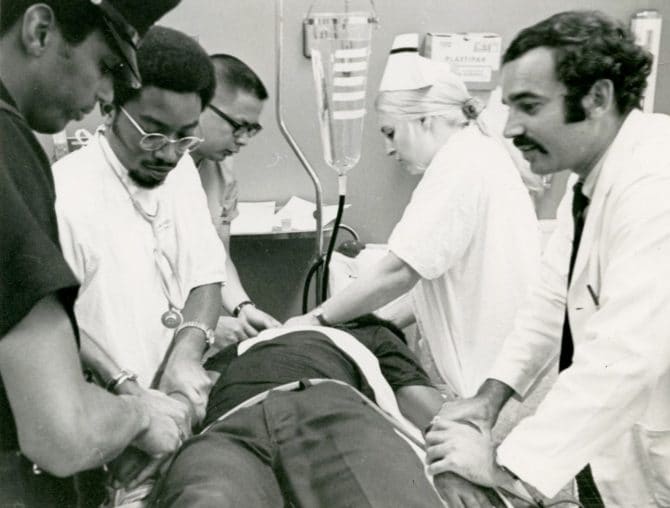
Additional Information
Search the library using the catalog.
Consult AAMLO's finding aids in the Online Archive of California.
We are working to create new resource guides. Have an idea for a new guide? Contact us at aamlo@oaklandlibrary.org.
